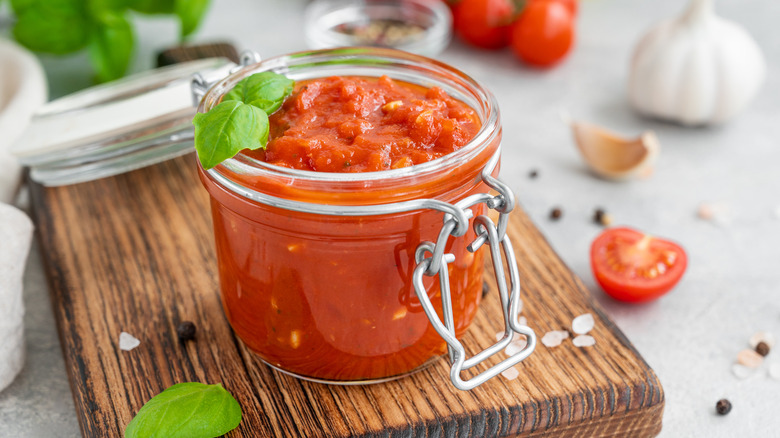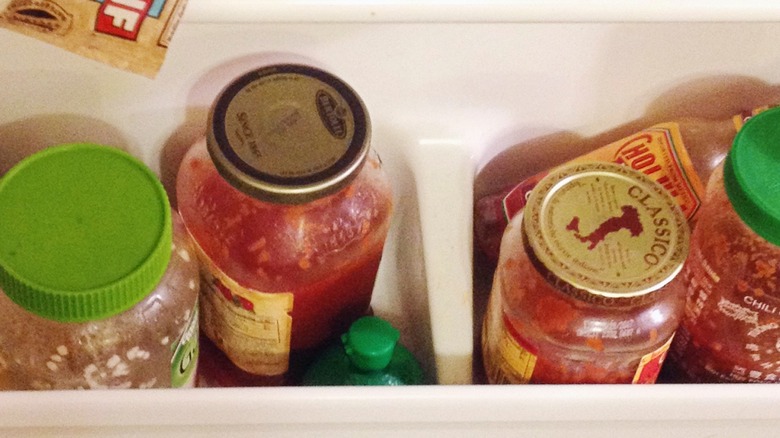The Food Safety Tip For Storing Leftover Jarred Pasta Sauce
Whether you prefer to make and can your own or enjoy a specific brand, jarred pasta sauce is a staple everyone should have stacked away in their pantries. It has a wide range of uses from pasta to pizza to sandwiches, and even as a dipping sauce of mozzarella sticks or calamari. And while we very often use the entire jar at once, there are times when leftovers remain. And it is during this time that a simple tip should be followed for safety.
If you are only using a portion of your jarred pasta sauce, make sure you use a fresh, clean utensil to remove it from the jar. This applies to both homemade and store-bought sauce. The purpose of the clean utensil is that you are not introducing other bits of food into your jar of sauce. If you were to use the utensil you had been cooking with, it would have come into contact with heat and food particles. Using it to scoop out your sauce will introduce those food particles and change the internal environment of the sauce.
As a result of this simple mistake, the sauce has the potential to spoil much faster than it otherwise would have. Though tomato sauce is highly acidic and therefore less likely to develop bacteria, it is by no means immune, per the National Center for Home Food Preservation. By introducing foreign contaminants, you increase the potential for foodborne illness and spoilage.
How to safely store your sauce
So, how do we store our sauce? If your sauce came originally in a plastic or glass container, you can continue to store it in that container, provided you keep the lid properly sealed. However, the best practice is to transfer it to a new, completely sanitary container. Sauce will keep in the fridge at 40 degrees Fahrenheit or lower for five to seven days, per the USDA.
If you're not planning on using the sauce within that week's period, you need to freeze it. If properly sealed in an airtight container, it will last up to six months, per Food Network. Keeping sauce in the fridge past the weeklong mark will increase its potential for spoilage, which can happen even if you didn't introduce contaminants during storage. Pasta sauce that is past its prime will notify you by a distinct acrid smell, and the presence of mold growth. All of these are signs of food contamination and should be discarded immediately. According to the CDC, foodborne illnesses such as salmonella and botulism are directly linked to the presence of harmful germs in contaminated food.
Whether it is homemade or not, once opened, the shelf life of the sauce decreases dramatically. But as long as you follow the proper steps, you'll be able to keep it anywhere from a week to half the year.

